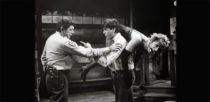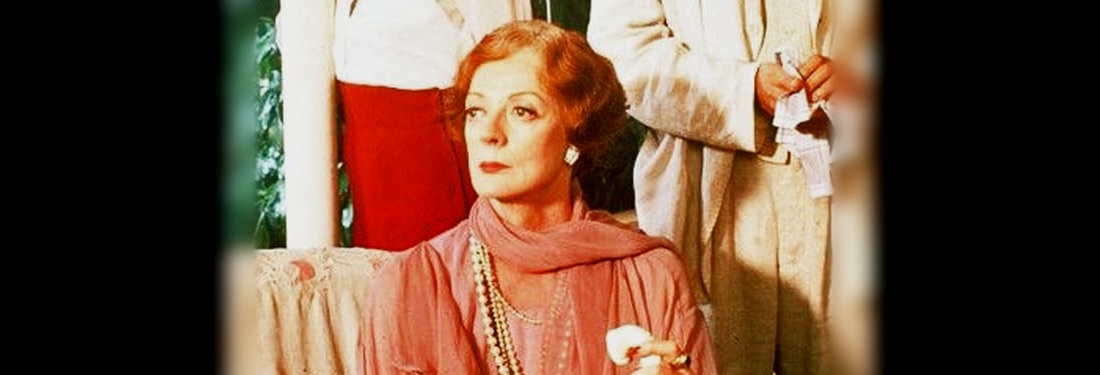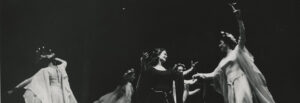
Critics and Their Criticism
This made-for-network version is surprisingly provocative and creative for its time. It’s not an unqualified success, but in terms of understanding the play as a whole, it’s a necessary part of the conversation.
Perhaps the idea here is to give Tennessee Williams’ 1947 play a renewed sense of visceral power that speaks to a younger audience? Maybe, but it doesn’t speak to me.
Although Kim Stanley’s big-screen appearances were rare—four major film roles, plus the uncredited narration in To Kill a Mockingbird—she was the leading lady of television drama’s “Golden Age.”
In I Can’t Imagine Tomorrow, we’re contending with Kim Stanley and the last gasp of the Method.
Reducing Antony and Cleopatra to the status of mere mortals makes their torrid, tragic love seem rather ho-hum.
I think that Cat on a Hot Tin Roof is the Williams play I have seen most often, on stage and through film. So, shall we share some observations on some of these experiences?
Gorgeousness is, of course, its own reward—and the movie of Cat on a Hot Tin Roof has many other pluses as well—but I do think Elizabeth Taylor‘s and Paul Newman‘s good looks pose an ongoing distraction.
This Cat seems more together than most. Unlike many of the teleplays we’ve considered so far, this one is actually directed by a Tony-winning theater director, and I’d venture that accounts for its relative success.
Cat on a Hot Tin Roof is sometimes called the American King Lear, which nods to themes of a father and his disappointing children… but I think it’s also Shakespearean in its sprawl and grandeur.
Yet there remain some memories and impressions I know we’d both like to share—on a few stage performances, memorable in various ways, so how about one more roundup?
Katharine Hepburn is better than I remembered, including making a reasonable attempt at a Southern accent. And, of course, there is distinctive star quality to burn, as well as interpretive intelligence.
Shirley Booth‘s Amanda reminds us again of her astonishing range, and truly unique (yes, a word I hate, but I mean it here) ability to mix heartbreak and humor in the same breath.
More than any actor I’ve seen on stage or screen, John Malkovich communicates the essential ambiguity of the character.
The 1950 movie seems intent to turn the story into a screen romance, eliding or ignoring the play’s mournful tenor.
In operatic pathology, diseases are endowed with preposterous mythological properties: they are both an emblem of desire and the punishment for desire. They are crime, confessional, and executioner all rolled into one.
Bus Stop deals with uncomfortable questions of sex and longing, and it also examines a desire for human connection that often comes up short.
It’s Easter season, and that can mean only one thing for opera: It’s Cavalleria Rusticana time. And I, for one, couldn’t be more excited.
It is interesting to consider how strongly Inge focuses on women (mostly single or widowed) and sex, particularly from his position as a (closeted) gay man.
A theater-critic friend of my father once said that Laurence Olivier played American like it was a character choice.
Like many artistic homosexuals, I’ve been through an Altman phase, a Cher phase, a Sandy Dennis phase and a Karen Black phase, so you needn’t explain yourself to me.
There’s no way for any production of Suddenly Last Summer to completely avoid at least a whiff of camp.
Having just watched and written about the famous Actors Studio Three Sisters, it also feels right to turn now to The Cherry Orchard—Chekhov’s final play—in a production from the BBC.
To opera denizens, Terrence McNally is probably best known for Master Class, a fictionalized account of Maria Callas’s 1970s Juilliard master classes, which was a surprise hit on Broadway in the 1990s.
What we see here from Strasberg is frustratingly literal and drably conventional—it looks to me like he’s channeling a lot of received wisdom about how Chekhov should be staged and bringing almost nothing of his own to the process.

















































